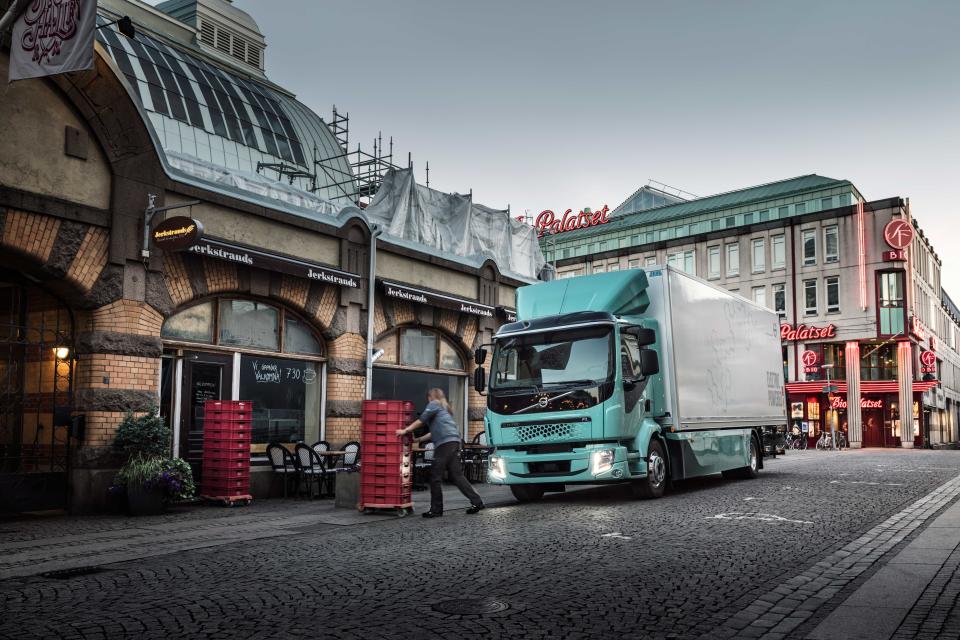Volvo's first heavy-duty electric trucks will hit the road in 2022
They'll offer a 200 mile range and "comparable" total costs to diesel trucks.
Volvo announced that it will be among the first manufacturers to start selling heavy-duty electric trucks in 2021, with volume production beginning in 2022. The 44 tonne (48 ton) trucks would have a range of up to 300 km (186 miles), depending on the configuration. The company has already started testing an electric concrete mixer and hook lift truck in partnership with the Swedish construction firm Swerock.
With the announcement, Volvo will have a full line of electric trucks. Last year, it started selling the Volvo FE Electric and FL Electric models with gross weights up to 26 tonnes (27 tons) and has been manufacturing hybrid electric buses since 2008.
The new trucks are electric versions of Volvo’s FH, FM and FMX trucks, used for regional transportation and urban construction. Since they’re designed to do relatively short runs between concrete plants and city construction sites, for instance, the relatively short range wouldn’t be an issue. Volvo Trucks president Roger Alm told the Financial Times that the company was shooting for operational costs — including fuel, financing and second hand value — “as comparable as possible” to diesel trucks.

At the same time, the company plans to gradually introduce heavy long-haul trucks “in this decade,” with a mix of battery-electric and hydrogen-powered fuel cell models. The latter will arrive in the second half of 2020, and Volvo plans to have its entire product range fossil-free by 2040.
Tesla’s heavy-duty Semi should still arrive ahead of the Volvo’s electric trucks, as it’s now schedule to ship in 2021 after production was pushed back from 2019. However, the Semi is designed more for long/short haul duties, not construction, with a longer range of 300 or 500 miles, depending on the configuration. We’ve also seen electric semi-trucks from Mercedes, Nikola, Cummins and Volvo’s Swedish rival, Volta.
